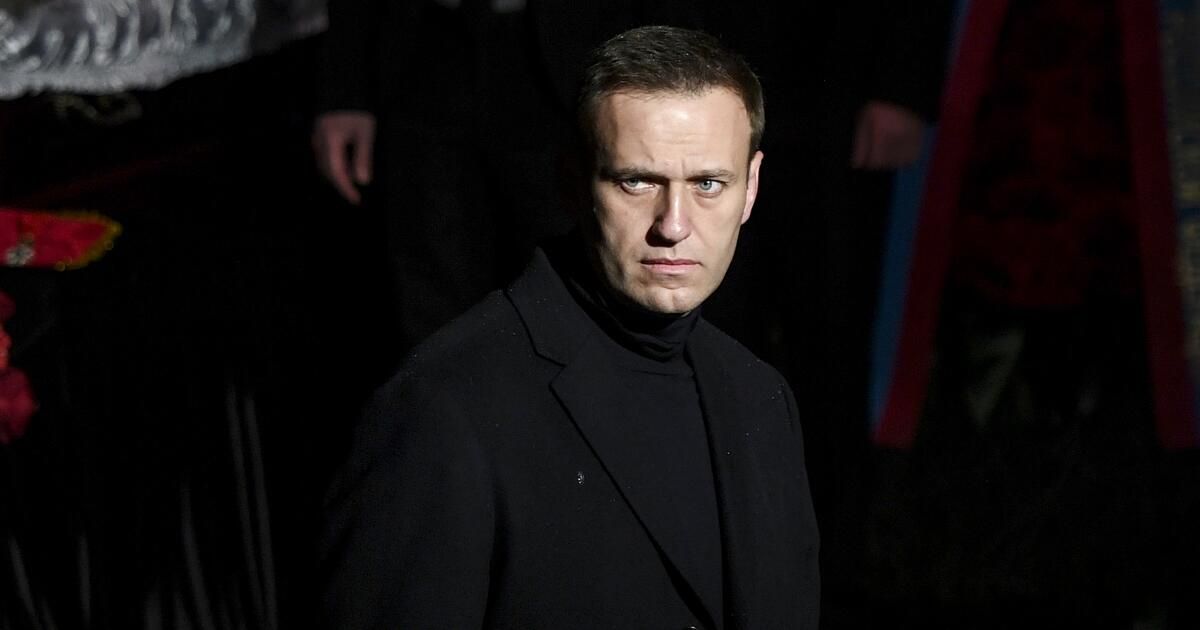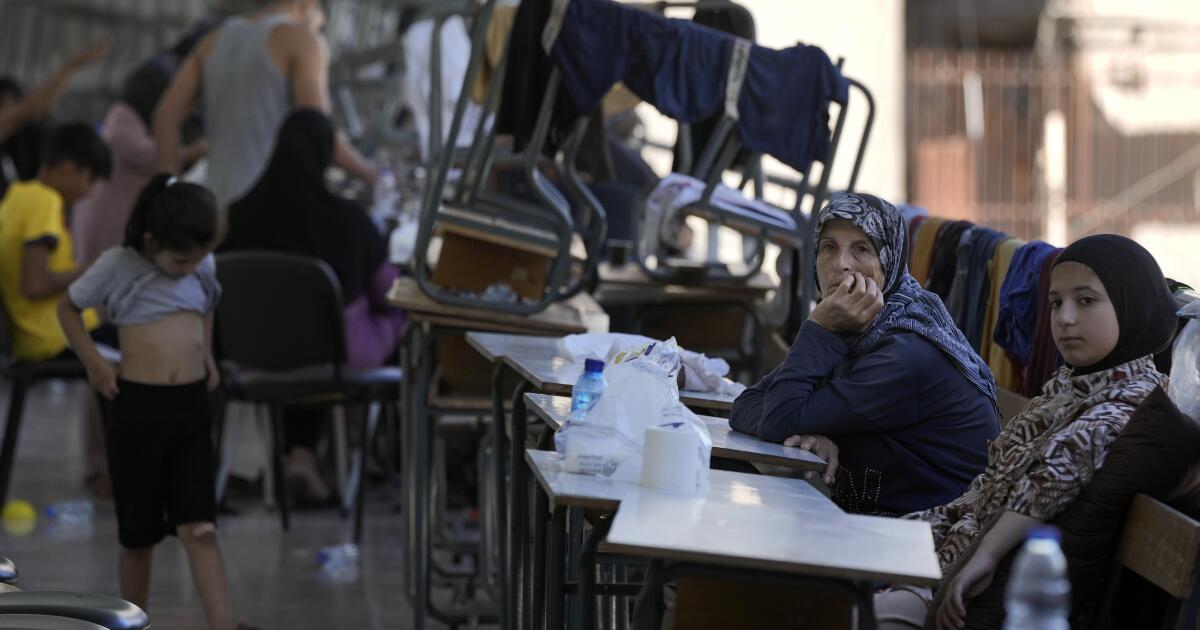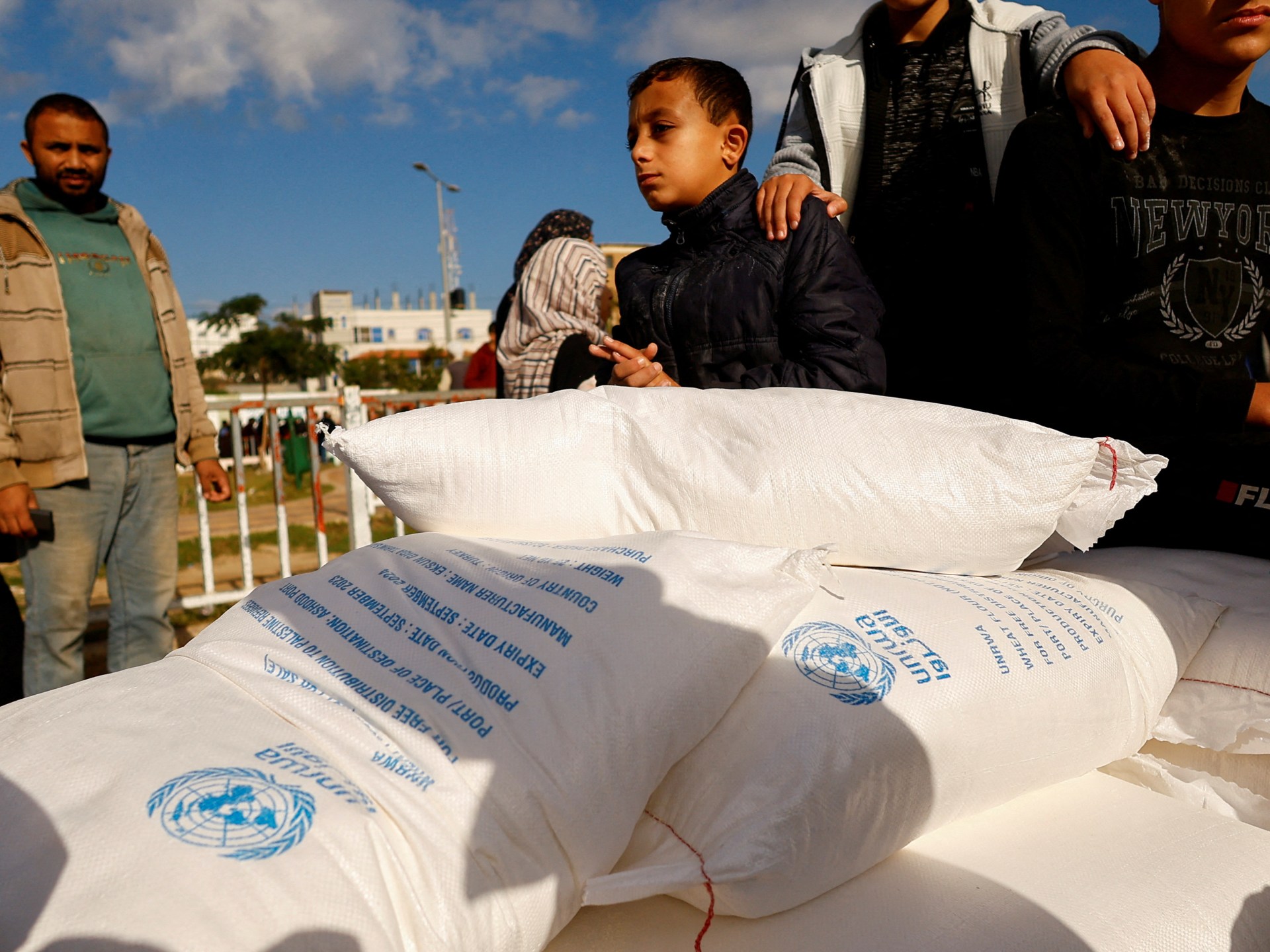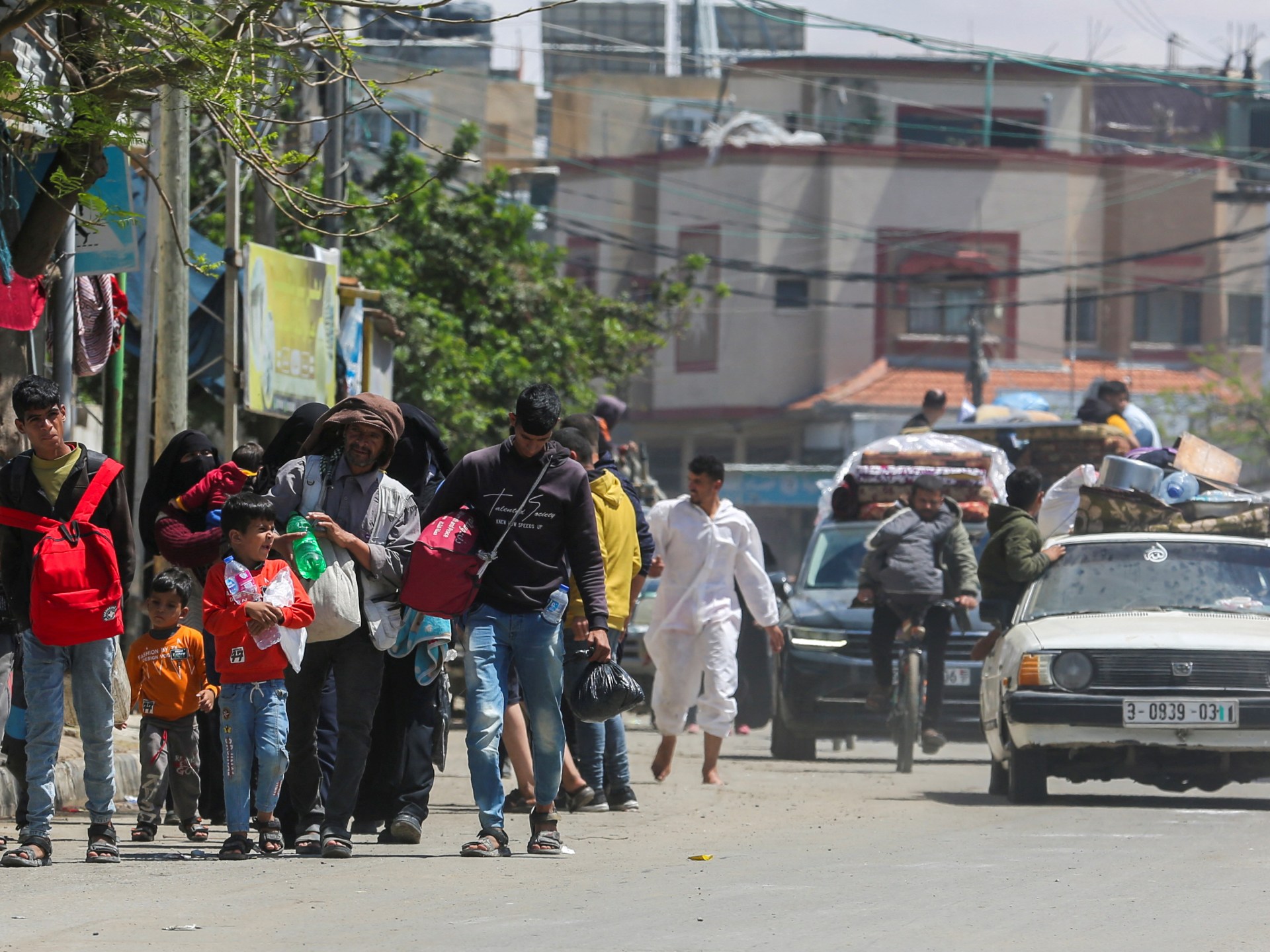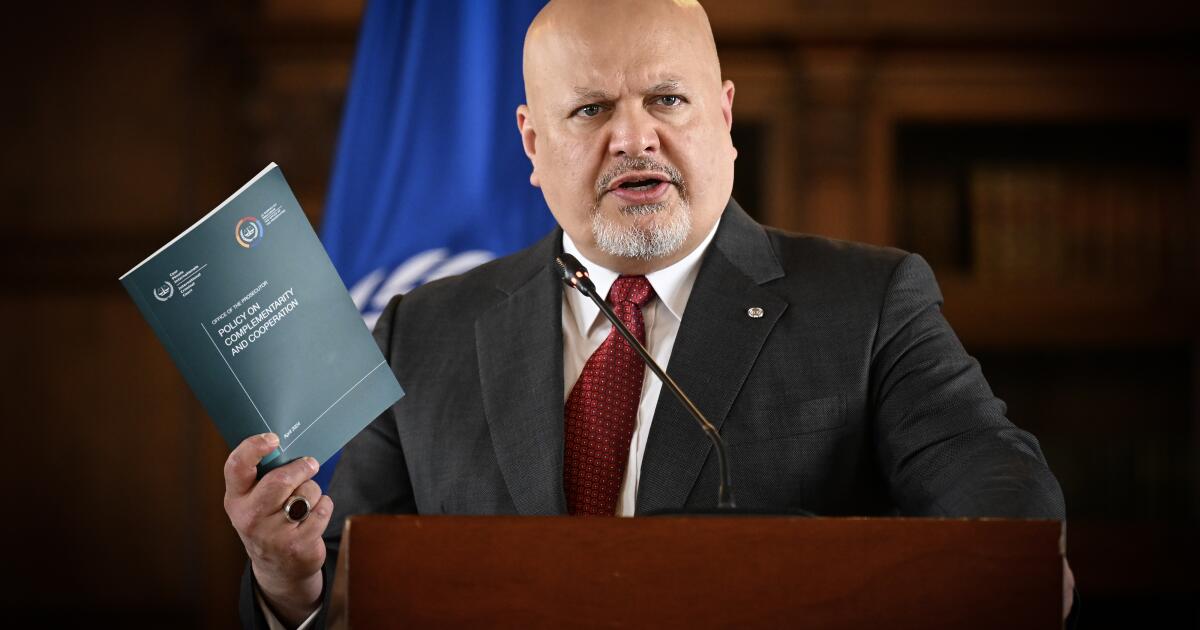MOSCOW — Russian opposition figure Alexei Navalny, who survived a near-fatal poisoning blamed on the Kremlin and endured harsh prison conditions even as he used dark humor and social media savvy to fight President Vladimir Putin's autocratic rule, has died in prison. on Friday, Russia's corrections agency said. He was 47 years old.
Although he won international praise for his scathing denunciations of Putin from prison over the catastrophic war in Ukraine and his fight for what he called a “beautiful” Russia free of dictatorial governments, Navalny's health visibly deteriorated after his imprisonment in early 2021 in a notorious penal colony east of Moscow.
His emaciated appearance shocked his followers when he appeared, via a blurry video link, at an August 4, 2023 hearing in which he was sentenced to 19 years in prison on what his supporters said were trumped-up extremism charges. . He had already been serving a nine-year sentence imposed after returning to Russia, and certain arrest, following his recovery in Germany from the 2020 attempt to kill him with a military-grade nerve agent.
Russian opposition leader Alexei Navalny waves to his supporters from the defendant's cage during a 2021 hearing in Moscow.
(Moscow City Court via AP)
The United States, along with other Western governments and human rights groups, called his latest trial and conviction a sham and demanded Navalny's immediate release. Secretary of State Antony J. Blinken called the ruling “politically motivated” and added: “The Kremlin cannot silence the truth.”
Critics criticized the dark nature of the trial, held in a makeshift courtroom with no family, journalists or spectators present. In video footage, Navalny, dressed in a black prison uniform, appeared even more frail than in other recent appearances, with his hair cropped short and eyes glistening in a haggard face.
Late last year he was transferred to a penal colony in the Arctic. The Federal Penitentiary Service reported that Navalny lost consciousness after a walk around the prison and said he was “establishing” the cause of death.
On Friday, world leaders mourned the death of the opposition figure, with many blaming Putin's government.
“Alexei Navalny fought for the values of freedom and democracy. For his ideals, he made the ultimate sacrifice,” published the President of the European Council, Charles Michel, on X, formerly known as Twitter. “The EU considers the Russian regime solely responsible for this tragic death.”
“If confirmed, it is a terrible tragedy, and given the Russian government's long, sordid history of harming its opponents, it raises real and obvious questions about what happened here,” said Jake Sullivan, the administration's national security adviser. Biden, on NPR. “But I will withhold further comment until we know more, and we are actively seeking confirmation, as I know Mr. Navalny's family is as well, and will determine from there what comes next.”
Over the years, from inside and outside prison, Navalny got under Putin's skin as few critics managed to do, daring to hurl jibes at the Russian leader alleging bribes in his inner circle that were more direct and blunt than any. opposition figure before him. Putin, for his part, refused for years to publicly pronounce the name of his nemesis.
After his latest trial, Navalny commented on a social media post, presumably transmitted through his team, urging his followers “not to lose the will to resist.” Of his sentencing, he said, the numbers hardly matter, but he described his plight as an implicit fight to the death between him and Putin's government.
“I fully understand that, like many political prisoners, I am serving a life sentence, which is measured by the length of my life or the length of the life of this regime,” Navalny said.
The war in Ukraine, a large-scale invasion launched by Putin in February 2022, aimed at quickly subduing Russia's smaller neighbor, fueled the Kremlin's crackdown on any form of internal dissent. Independent Russian media outlets were shut down and criticism of the country's military was made a criminal offence. Navalny's team, along with many other opposition figures, was forced into exile.
Navalny, who until then had focused his messages on corruption in Putin's inner circle, crafted his jailhouse missives to repeatedly criticize a war effort he called unfair and almost comically incompetent, in which ordinary conscripts and their families paid the price of the Russian leader's grandiose measures. ambitions.
“It is one thing for Putin to kill Ukrainian civilians and destroy vital infrastructure with the full approval of Russian citizens,” he wrote in a social media post a month after the war began. “However, it is a completely different story if Putin's bloody undertaking is not supported by society.”
However, Ukrainians largely refrained from joining the global glorification of Navalny, with many recalling their initial tacit support for the Russian leader's illegal seizure and annexation of the Ukrainian peninsula of Crimea in 2014. That year, the the same one in which the Ukrainians overthrew a pro-Kremlin party. As the leader of a popular uprising, Russia also fomented a separatist uprising in Ukraine's industrial east, which Ukraine considers the true beginning of the current war.
Since Navalny's early days as a blogger, he has gone from a relatively little-known gadfly (a lawyer who doggedly documented corruption in high places) to the country's best-known opposition figure. In 2023, a film about his activism and recovery from poisoning won an Academy Award for Best Feature Documentary. He was participating in a court hearing via videoconference from prison when he found out about the Oscar.
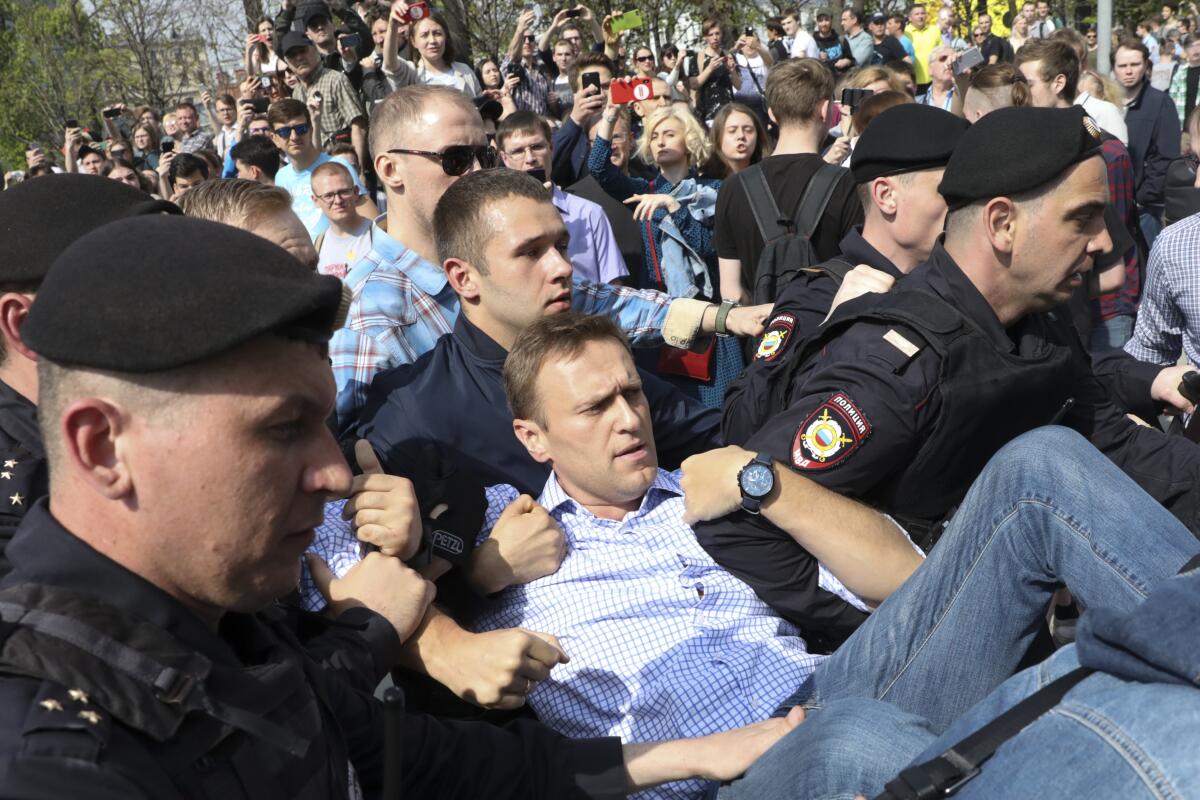
Russian police carry opposition leader Alexei Navalny, center, at a demonstration against President Vladimir Putin in Pushkin Square in Moscow, Russia, Saturday, May 5, 2018. Thousands of protesters denounce the upcoming inauguration of Putin for a fourth term met on Saturday in the capital's Pushkin. Square. (AP Photo)
(AP)
After his arrest in January 2021, protests, the largest in Russia in at least a decade, spanned all 11 of the country's time zones and led to thousands of arrests.
After Navalny began a hunger strike in late March 2021 to protest the denial of adequate medical treatment by Russian authorities (for ailments likely related to his poisoning with what Western doctors said was the nerve agent Novichok), his plight provoked anguish and fury among his supporters at home. and all over the world.
An Instagram post by Navalny about his hunger strike ordeal employed the scathing tone his followers were accustomed to, describing how a prison official “detailed to me the pleasures of force-feeding.”
His imprisonment in 2021 was allegedly for a parole violation (a Kafkaesque accusation, his supporters said, because he was hospitalized in Germany at the time he was accused of failing to communicate with parole officials) stemming from what the Union European describes it as a politically motivated operation. conviction for fraud in 2014.
Behind bars, he developed severe back pain and numbness in his legs, possible side effects of his poisoning. Russian authorities responded to his requests for proper medical care by sending what Navalny called a propagandist (Maria Butina, who served time in the United States for working as a foreign agent before being sent back to Russia) along with a television crew. to mock his allegations of mistreatment.
Even as he languished, Navalny's supporters continued their accusations of high-level corruption. In April 2021, his organization, which had published a widely viewed video called “Putin's Palace,” about an opulent Black Sea resort supposedly paid for by the president's wealthy supporters, published a new investigation of a luxurious residence that was It was said to have been used by Putin in a lake northwest of the Russian capital.
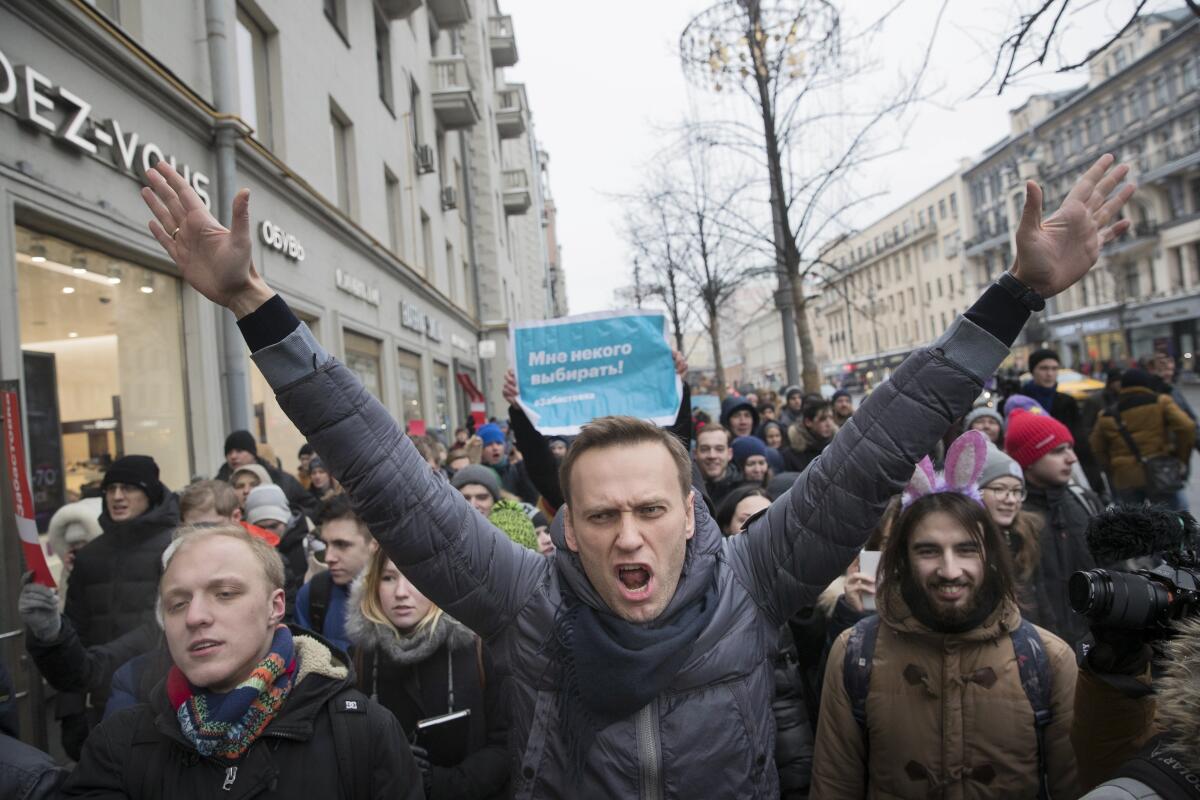
Alexei Navalny, center, attends a rally in Moscow in 2018.
(Evgeny Feldman / Associated Press)
His fifth and final criminal conviction had to do with the work of his foundation, which Russia banned in 2021, along with Navalny's other offices, as extremist groups. The extremism charges criminalized all of the anti-corruption foundation's activities since its founding in 2011, Navalny's allies said.
The court ordered Navalny to serve the new term in a “special regime” penal colony, where men sentenced to life imprisonment or “especially dangerous repeat offenders” are sent.
He was already held in a maximum security prison (Penal Colony No. 6 in the city of Melekhovo) and had spent months in a small, one-person “punishment cell.” His alleged infractions included not washing his face at a certain time and not buttoning his clothes properly.
After his sentencing in August, Navalny's spokeswoman Kira Yarmysh told the Associated Press that the opposition leader still felt optimistic.
“It seems to me that he is probably the biggest optimist among all of us,” he said. “This happens because Alexei is absolutely convinced of what he is doing and trusts that he is right.”
Former special correspondent Vasiliy Kolotilov and the Associated Press contributed to this report.

